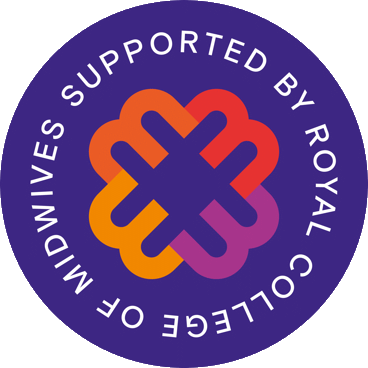Mood and wellbeing
After giving birth and starting the journey of taking care of your little one, a range of factors can influence how you feel, including hormonal changes, the emotions that come with a big life change, and lack of sleep, to name a few.
It’s perfectly normal to have times of feeling overwhelmed as a new parent, and to have ups and downs in your mood, and there are things you can do to help support your wellbeing at this time, as well as people and places you can reach out to for an extra helping hand when needed.
Eating well
As well as supporting your recovery from birth, your overall physical health, and the extra demands on your body if you’re breastfeeding, eating well can also support your mood. Many nutrients can impact on mood, with deficiencies potentially leading to an increased risk of depression. For instance, low intake or deficiency in omega-3 (found in oily fish such as salmon, mackerel and sardines, as well as linseed and walnuts) is associated with an increased risk of postnatal depression.
Having an iron deficiency, or anaemia, can also increase the risk. This nutrient can be particularly low following pregnancy and birth, so topping up your iron levels can be important for looking after your physical and mental health. Good sources include lean red meat, poultry and fish, plant-based sources such as beans, peas and lentils, dark green veg like spinach and broccoli, and nuts and seeds.
Making healthy food choices can be tricky at the best of times, and looking after a new baby certainly doesn’t make it any easier! You can find tips and suggestions for eating well at this time here.
Staying active
As well as supporting general fitness and health (and helping support with the energy and strength needed to keep up with a little one!), activity can be beneficial for coping with low mood and anxiety. The ‘buzz’ from post-exercise endorphins can help boost mood, while getting moving can help relieve stress and improve self-image, and can be a great way to take some time for yourself, or connect with others. Look in your local area for mum-and-baby classes so you can get moving alongside your baby and meet other parents.
Getting outside for a walk and some fresh air can also do wonders for your mood, especially after a sleepless night, and your baby will love taking in the sights outside or having a nap in the pram or sling.
*While there are many brilliant benefits to becoming more active, we recommend that you talk to your midwife/GP before embarking on a new exercise regime (especially if you have had a Caesarean section) and, if you’re attending a class that isn’t specifically aimed at postnatal women, mention to the person running the class that you have recently had a baby.
Taking time for you
Building in time for yourself, to do things that you find calming, enjoyable and restorative, can be beneficial – even if it’s just taking time to have a nap or lie down and catch up on a bit of rest, as sleep has a huge impact on mood (which isn’t news to new parents!).
This is much easier said than done when looking after a new baby and juggling any other demands, but don’t feel guilty about carving time out to look after yourself – taking care of yourself means you’ll be even better able to look after everyone else. Truly, the housework can wait! Feel comfortable taking people up on any offers of help, and don’t be afraid to reach out and ask for some support when you need it.
Talking it out
Discussing concerns and how you’re feeling with a friend, family member or healthcare professional can be useful for helping you work through your worries and reach out for support. Talking to other parents can be helpful, too, and there are often local groups that can be a welcome support.
Partners can often be feeling their own range of emotions as they adjust to their new responsibilities and the experience they’ll have of bonding with the new baby. Talking can help you offer support to each other.
Further support
It’s common to feel emotional after having a baby, but for some people these feelings can linger and develop into postnatal depression. If you feel you need more support with your mood and wellbeing, or your partner does, speak to your GP or health visitor for support. There are also services providing information, advice and support that you can reach out to, such as the National Childbirth Trust (NCT), Pre and Postnatal Depression Advice and Support (PANDAS), Maternal Mental Health Alliance and Tommy’s.






